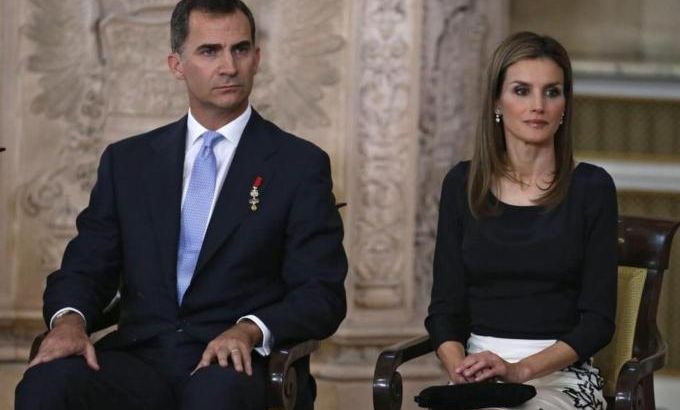Spain’s Crown Prince Felipe becomes king
Crown prince ascends to Spanish throne in no-frills ceremony aimed at showing Felipe is in tune with his countrymen.

Spain’s Crown Prince Felipe has ascended to the Spanish throne but there were no ostentatious official celebrations.
The economic crisis that has left a quarter of Spaniards out of work prompted Europe’s newest king to be relatively frugal at his proclamation.
Keep reading
list of 4 itemsUS sanctions two RSF commanders as fighting escalates in Sudan’s Darfur
The Lost Souls of Syria – Part 1
Is the US shipping weapons to Israel tacit support for its war on Gaza?
The former king, 76-year-old Juan Carlos, misjudged public anger at financial hardship when he went on an elephant-hunting safari in Africa.
Felipe, 46, appears keen to show he is more in tune with his countrymen and avoid the mistakes of his abdicating predecessor.
The ceremony at midnight on Wednesday was perhaps most notable for what it did not include: no state banquet, no foreign royals or heads of state, no ostentatious ceremonies or parades.
By royal standards, it was humble. Reception guests were served hot and cold tapas-style nibbles, to be eaten while standing.
There was no champagne, just sparkling cava wine from Spain’s Catalonia region.
No-frills event
Juan Carlos on Wednesday signed legislation, approved by the parliament earlier this month, setting out the legal framework for the handover.
Prime Minister Mariano Rajoy immediately ratified the law, which went into force at midnight on Wednesday in Spain.
Felipe is to be formally proclaimed monarch and swear an oath at a ceremony in the Spanish parliament on Thursday.
It will be a no-frills event, though the 18th-century Spanish crown and 17th-century sceptre will be on display.
After a brief military parade, King Felipe VI and Queen Letizia will take a drive through expected crowds along some of Madrid’s most emblematic streets and monuments – such as the Prado Museum and the Cibeles fountain.
The palace acknowledged that the customary pomp had been eliminated “in keeping with the criteria of austerity that the times recommend”.
Double-dip recession
Juan Carlos announced his surprise decision to abdicate on June 2, saying he was stepping aside after a four-decade reign to allow for younger royal blood to rally the country that is still trying to shrug off a double-dip recession and a 26 percent jobless rate.
The abdication announcement initially triggered widespread demonstrations calling for a referendum on reinstating a republic.
Juan Carlos took over the throne in 1975, two days after the death of longtime dictator General Francisco Franco, and then endeared himself to many by making rebels stand down during an attempted military coup in 1981.
More recently, however, the royal family’s image was tarnished by Juan Carlos’s 2012 Botswana hunting trip.
Another scandal saw Juan Carlos’ youngest daughter, Princess Cristina, testify this year in the fraud and money-laundering case engulfing her husband, Inaki Urdangarin.